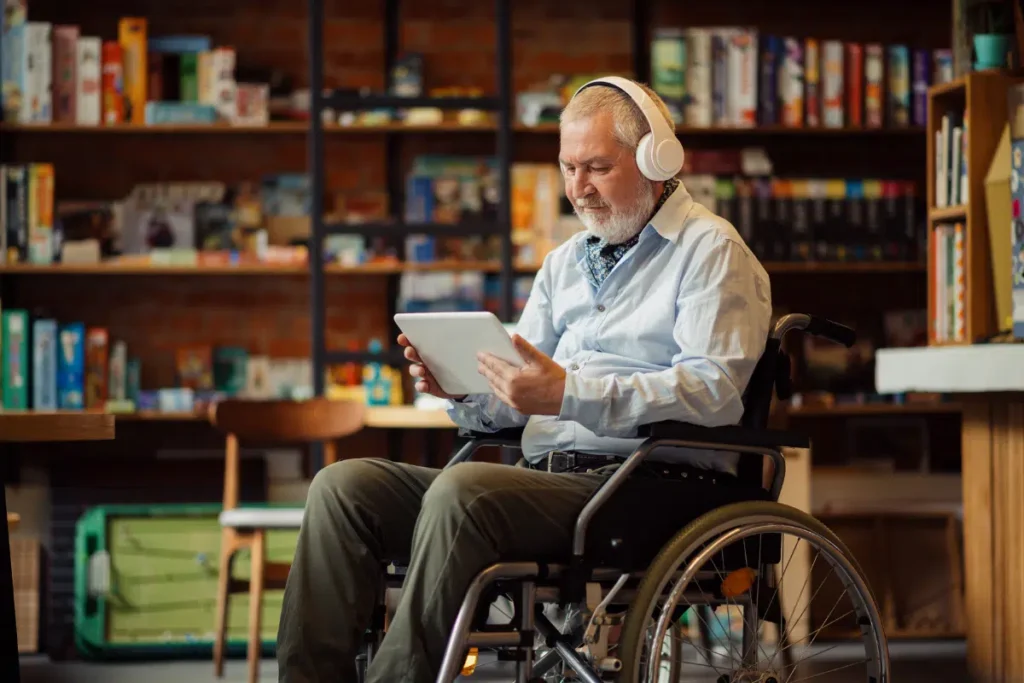
When you’re young, you’re constantly learning new things. That’s because, by nature, there’s so much you don’t know yet. Simply going about your daily life, your brain absorbs new information and skills.
But as we age, it’s easy to get stuck in the same routines on autopilot. And, unfortunately, when we’re on autopilot, our brains don’t have to work as hard.
So, even though our brains could really use the extra challenge and boost of health as we grow older, we actually make it work less!
When your brain works less, overall brain performance may decrease—like memory, concentration, and problem-solving.¹
How can you maintain and improve brain performance as you get older? Today we’re exploring one habit that can drastically improve brain performance: learning new things.
Learning new things on a regular basis is key for brain health.² We will cover why learning new things is so important, how it can improve brain performance, and how to get into the habit of always learning new things.

Why is learning new things so important?
Learning new things makes you magnetic. See, when you’re always learning something new, you always have something to talk about and something to offer.
Learning new things can also help you stay relevant in a rapidly changing world. While all of that is fantastic, the importance of learning new things goes beyond social skills and career performance.
One study showed that learning new things may help reduce stress.³ How? When you’re learning new things, your brain is occupied. You don’t have the space to ruminate, and you aren’t focusing on your stress.
Learning new things can also help improve confidence and even give you the exact skills you need to solve a problem and reduce stress. It’s hard to feel anxious or insecure when you’re picking up a new skill.
How does learning new things improve brain performance?
Science has shown that learning new things is at the heart of brain performance. When you learn a new skill, your brain forms new neural pathways.⁴ Neural pathways are the connection between neurons in your brain; every thought you have is a neural pathway.
As you learn new things, you’re literally growing your brain’s capacity and increasing brain performance. A lot of people believe that once you reach adulthood, it’s difficult to form new habits and beliefs, but science has proven the opposite.
It turns out the human brain is very malleable at any age.⁵ While it takes more commitment when you’re older, improving brain performance at any age is possible. One of the best ways to do that is by learning new things.

What’s the best way to learn new things?
OK, you know learning new things is important, but how can you make learning new things part of your routine?
It’s common to feel stuck when you want to learn something new, but you don’t have to stay stuck. With a little creativity and commitment, you can get into the habit of learning new things on a regular basis.
Let’s dive into five steps you can take to make learning new things part of your routine:
Travel
Travel as much as you can. It forces you to learn new things, which can improve brain performance. It doesn’t have to be extensive (expensive!) travel. Simply spending some time in a new town near your own can help you form new neural pathways and help you develop new skills.
Whether you’re navigating new terrain or trying to find a restaurant, your brain is working more than usual.
Bonus: Add an activity you’ve never done before—like surfing, skiing, or learning to cook something new—and your trip will be jam-packed with brain boosters.
Pick up a hobby
Most of us have at least one hobby we’ve wanted to try but haven’t made the time for.
Whether it’s dancing, painting, or writing poetry, block off just one hour per week to experiment with a new hobby. Sign up for a class or do it with a friend to create accountability.
Practicing a new hobby creates new neural pathways and improves brain performance.

Learn a foreign language
Many dream of learning a foreign language but have yet to do it. Even if you never become fluent, practicing a new language is a great way to exercise your brain and improve brain performance.
Choose a language learning app and commit to just 30 minutes, three times a week, to start. Think of it as a brain workout rather than putting pressure on yourself to become fluent.
Whether you fall in love with the language and pursue fluency or not, you’ll be learning something new, even if it’s just a few words. It doesn’t have to be all or nothing.
Try a new recipe

Continuing education
One sign you’re in the right career is that you’re still excited to study your craft. The secret of many experts and top performers is that they never stop learning. There’s always more to learn in your chosen field.
If you work in marketing, take a course in copywriting or SEO. If you’re a graphic designer, sign up for an art class. If you work in hospitality, take a wine course.
Signing up for a class or course can help you stay accountable. Continuing education will exercise your brain, improve your skills, and expand your career. It’s a win-win-win.
Final Thoughts on Learning New Things
When you want to learn something new, the most challenging part is getting started.
It takes around 66 days, on average, to form a new habit, so don’t get discouraged if you don’t hit a groove with learning new things right away.⁶
Simply get in the habit of seeking out new things, even if only occasionally, to start. Once your brain gets into the habit of pursuing new skills rather than sticking to what you know, wanting to learn new things may become part of who you are.
Always remember that the latest science shows the human brain can change and grow at any age. Don’t let your stage of life stop you from learning new things and improving your brain performance.
References
Neural Pathways: How Your Mind Stores the Info and Thoughts that Affect Your Behaviourhttps://www.ncbi.nlm.nih.gov/pmc/articles/PMC6128435/ https://onlinelibrary.wiley.com/doi/abs/10.1002/ejsp.674
